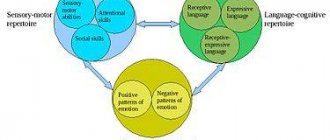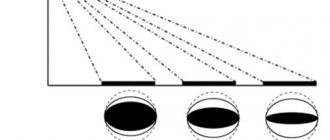Erich Seligmann Fromm is a world-famous American psychologist and humanistic philosopher of German origin. His theories, although rooted in Freudian psychoanalysis, focus on the individual as a social being who uses the powers of reasoning and love to move beyond instinctual behavior.
Fromm believed that people should be responsible for their own moral decisions, and not just for complying with the norms imposed by authoritarian systems. In this aspect of his thinking he was influenced by the ideas of Karl Marx, especially his early "humanistic" thoughts, and his philosophical works therefore fall under the neo-Marxist Frankfurt School - a critical theory of industrial society. Fromm rejected violence, believing that through empathy and compassion, people can rise above the instinctive behavior of the rest of nature. This spiritual aspect of his thinking may have resulted from his Jewish background and Talmudic education, although he did not believe in a traditional Jewish God.
The humanistic psychology of Erich Fromm had the greatest influence on his contemporaries, although he distanced himself from its founder, Carl Rogers. His book, The Art of Loving, remains a popular bestseller as people seek to understand the meaning of “true love,” a concept so profound that even this work only scratches the surface.
Early biography
Erich Fromm was born on March 23, 1900 in Frankfurt am Main, then part of the Prussian Empire. He was the only child in an Orthodox Jewish family. His two great-grandfathers and his paternal grandfather were rabbis. His mother's brother was a respected Talmudist. At the age of 13, Fromm began studying the Talmud, which lasted 14 years, during which he became familiar with socialist, humanist and Hasidic ideas. Although religious, his family, like many Jewish families in Frankfurt, was engaged in trade. According to Fromm, his childhood took place in two different worlds - the traditional Jewish one and the modern commercial one. By age 26, he had rejected religion because he felt it was too controversial. However, he retained his early memories of the Talmud's messages of compassion, redemption, and messianic hope.
Two events in the early biography of Erich Fromm seriously influenced the formation of his views on life. The first happened when he was 12 years old. It was the suicide of a young woman who was a family friend of Erich Fromm. There were many good things in her life, but she could not find happiness. The second event occurred at the age of 14 - the First World War began. According to Fromm, many usually kind people became evil and bloodthirsty. The search for understanding the causes of suicide and militancy underlies many of the philosopher’s thoughts.
Teaching activities in Germany
In 1918 Fromm began his studies at the Johann Wolfgang Goethe University in Frankfurt am Main. The first 2 semesters were devoted to jurisprudence. During the summer semester of 1919, he transferred to the University of Heidelberg to study sociology with Alfred Weber (brother of Max Weber), Karl Jaspers and Heinrich Rickert. Erich Fromm received a diploma in sociology in 1922 and completed his studies in psychoanalysis at the Psychoanalytic Institute in Berlin in 1930. That same year he started his own clinical practice and began working at the Frankfurt Institute for Social Research.
After the Nazis came to power in Germany, Fromm fled to Geneva and, in 1934, to Columbia University in New York. In 1943, he helped open the New York branch of the Washington School of Psychiatry, and in 1945, the William Alanson White Institute of Psychiatry, Psychoanalysis and Psychology.
Philosophy
In the mid-20s, Erich Fromm became a psychoanalyst. He soon entered private practice, which continued for 35 long years.
Over the years of his biography, Fromm managed to communicate with thousands of patients, trying to penetrate and understand their subconscious.
Erich Fromm in his youth and adulthood
The doctor managed to collect a lot of useful material, which allowed him to study in detail the biological and social features of the formation of the human psyche.
In the period 1929-1935. Erich Fromm researched and classified his observations. At the same time, he wrote his first works, which spoke about the methods and tasks of psychology.
In 1933, when the National Socialists, led by Adolf Hitler, came to power, Erich was forced to flee to Switzerland. A year later, he decided to leave for the USA.
Once in America, the man taught psychology and sociology at Columbia University.
Immediately after the end of World War II (1939-1945), the philosopher became the founder of the William White Institute of Psychiatry.
In 1950, Erich went to Mexico City, where he taught at the National Autonomous University for 15 years. During this biography, he published the book “A Healthy Society,” in which he openly criticized capitalism.
The psychoanalyst's work was a great success. His work “Escape from Freedom” became a real bestseller. In it, the author talked about changes in the psyche and behavior of a person in Western culture.
The book also paid attention to the period of the Reformation and the ideas of theologians John Calvin and Martin Luther.
In 1947, Fromm published a sequel to the acclaimed “Escape,” calling it “A Man for Himself.” In this work, the author developed the theory of human self-isolation in the world of Western values.
In the mid-50s, Erich Fromm became interested in the topic of the relationship between society and man. The philosopher sought to “reconcile” the opposing theories of Sigmund Freud and Karl Marx. The first argued that man is asocial by nature, while the second called man a “social animal.”
Studying the behavior of people from different social strata and living in different countries, Fromm saw that the lowest percentage of suicides occurred in poor countries.
The psychoanalyst designated radio broadcasting, television, rallies and other public events as “ways of escape” from nervous disorders, and if such “benefits” are taken away from a Western person for one month, then with a high degree of probability he will be diagnosed with neurosis.
In the 60s, a new book, “The Soul of Man,” was published from the pen of Erich Fromm. In it he discussed the nature of evil and its manifestations.
The writer concluded that violence is a product of the desire for dominance, and that the threat is posed not so much by sadists and maniacs, but by ordinary people who have all the levers of power.
In the 70s, Fromm published the work “Anatomy of Human Destructiveness,” where he raised the topic of the nature of an individual’s self-destruction.
Personal life
Erich Fromm was married three times. His first wife was Frieda Reichmann, a psychoanalyst who gained a good reputation for her effective clinical work with schizophrenics. Although their marriage ended in divorce in 1933, Fromm acknowledged that she taught him a lot. They maintained friendly relations until the end of their lives. At the age of 43, Fromm married a fellow emigrant from Germany of Jewish origin, Henny Gurland. Due to problems with her health, the couple moved to Mexico in 1950, but the wife died in 1952. A year later, Fromm married Annis Freeman.
Life in America
After moving to Mexico City in 1950, Fromm became a professor at the National Academy of Mexico and created the psychoanalytic sector of the medical school. He taught there until his retirement in 1965. Fromm was also a professor of psychology at Michigan State University from 1957 to 1961 and an adjunct professor of psychology in the Graduate School of Arts and Sciences at New York University.
Fromm changes his preferences again. A strong opponent of the Vietnam War, he supports pacifist movements in the United States.
In 1965, he ended his teaching career, but for several more years he lectured at various universities, institutes and other institutions.
Last years
In 1974 he moved to Muralto, Switzerland, where he died at his home in 1980, just 5 days short of his eightieth birthday. Until the very end of his biography, Erich Fromm led an active life. He had his own clinical practice and published books. Erich Fromm's most popular work, The Art of Loving (1956), became an international bestseller.
Biography
Erich Fromm is an American psychoanalyst with German roots who developed the concept of humanistic psychoanalysis. A prominent representative of the Frankfurt School, one of the founders of neo-Freudianism and Freudo-Marxism.
Portraits of Erich Fromm
Many books by the personality psychology theorist, written in living language, became bestsellers: “Escape from Freedom”, “Man for Himself”, “To Have or to Be”, “The Art of Loving”.
The main theme of the work of Erich Fromm, who devoted almost his entire life to the study of the subconscious, was the contradictions of human existence in the world.
Psychological theory
In his first semantic work, Escape from Freedom, first published in 1941, Fromm analyzes the existential state of man. He does not consider sexual reasons as the source of aggressiveness, destructive instinct, neurosis, sadism and masochism, but presents them as attempts to overcome alienation and powerlessness. Fromm's idea of freedom, in contrast to Freud and the critical theorists of the Frankfurt School, had a more positive connotation. In his interpretation, it is not liberation from the repressive nature of technological society, as, for example, Herbert Marcuse believed, but represents an opportunity to develop human creative powers.
Erich Fromm's books are renowned both for his social and political commentary and for their philosophical and psychological underpinnings. His second semantic work, Man for Himself: A Study in the Psychology of Ethics, first published in 1947, was a sequel to Flight from Freedom. In it, he focused on the problem of neurosis, characterizing it as a moral problem in a repressive society, the inability to achieve maturity and personal integrity. According to Fromm, a person's capacity for freedom and love depends on socio-economic conditions, but is rarely found in societies where the desire for destruction prevails. Taken together, these works set forth a theory of human character that was a natural extension of his theory of human nature.
Erich Fromm's most popular book, The Art of Loving, was first published in 1956 and became an international bestseller. It repeats and expands on the theoretical principles of human nature published in the works “Escape from Freedom” and “Man for Himself,” which were also repeated in many other major works of the author.
A central part of Fromm's worldview was his concept of the self as a social character. In his view, basic human character stems from the existential frustration of being part of nature and feeling the need to rise above it through the ability to reason and love. The freedom to be a unique individual is scary, which is why people tend to surrender to authoritarian systems. For example, in Psychoanalysis and Religion, Erich Fromm writes that for some, religion is the answer, not an act of faith, but a way to avoid intolerable doubts. They take this decision not out of devotional service, but out of search for security. Fromm extols the virtues of people taking independent action and using reason to establish their own moral values rather than following authoritarian norms.
Humans have evolved into beings aware of themselves, their own mortality and powerlessness before the forces of nature and society, and are no longer one with the Universe, as they were in their instinctive, pre-human, animal existence. According to Fromm, the awareness of a separate human existence represents a source of guilt and shame, and the solution to this existential dichotomy is found in the development of the uniquely human abilities to love and reflect.
One of the popular quotes from Erich Fromm is his statement that a person’s main task in life is to give birth to himself, to become who he really is. His personality is the most important product of his efforts.
Erich Fromm: humanistic theory of personality
No theorist could describe the social determinants of personality as expressively as Erich Fromm. As a representative of the humanistic movement, Fromm argued that human behavior can only be understood in the light of cultural influences existing at a given specific moment in history. He was convinced that needs unique to humans evolved over the course of human history, and various social systems, in turn, influenced the expression of these needs. From Fromm's point of view, personality is the product of a dynamic interaction between innate needs and the pressure of social norms and prescriptions. He was the first to formulate a theory of character types, based on a sociological analysis of how people in society actively shape the social process and culture itself. Biographical sketch
Erich Fromm was born in 1900 in Frankfurt, Germany. He was the only child of Jewish parents. Fromm grew up knowing two different worlds - Orthodox Jewish and Christian, where he occasionally encountered anti-Semitism. Fromm's family was far from ideal. He described his parents as “very neurotic” and himself as an “unbearably neurotic child” (Funk, 1982).
When World War I broke out in Europe, Fromm was 14 years old. Although he was too young to fight, he was amazed by the human irrationality and destructive tendencies around him. He later wrote: “I was a deeply troubled young man, tormented by the question of how this war was possible, and also by the desire to understand the irrationality of the behavior of the human masses and the passionate desire for peace and understanding between peoples” (Fromm, 1962, p. 9). The answers to these questions show the enormous influence of Freud and Karl Marx. Freud's works helped him understand that people are not aware of the reasons for their behavior. By reading Marx, he learned that socio-political forces significantly influence people's lives.
Unlike Freud, Jung and Adler, Fromm did not have a medical education. He studied psychology, sociology and philosophy, receiving a PhD from the University of Heidelberg in 1922. He continued his psychoanalytic training at the Berlin Psychoanalytic Institute. In 1934, Fromm emigrated to the United States to escape the Nazi threat. He began a private practice in New York. Fromm published his first book, “Flight from Freedom,” in 1941. In it he showed the special importance of the ways in which social forces and ideologies shape the structure of an individual's character. This direction, developed in a large number of subsequent books, brought Fromm membership in the International Psychoanalytic Association (Roazen, 1973).
In 1945, Fromm became a member of the William Alanson White Institute of Psychiatry. He subsequently lectured at many US universities and served as professor of psychiatry at the National University of Mexico City from 1949 until his retirement in 1965. Together with his wife, Fromm moved to Switzerland in 1976, where he died of a heart attack in 1980.
Humanistic theory: basic concepts and principles
Fromm sought to expand the horizons of psychoanalytic theory, emphasizing the role of sociological, political, economic, religious and anthropological factors in the formation of personality. His interpretation of personality begins with an analysis of the human condition and its changes, from the end of the Middle Ages (late 15th century) to our time. At the end of his historical analysis, Fromm concluded that an essential feature of human existence in our time is loneliness, isolation and alienation (Fromm, 1941/1956). At the same time, he believed that each historical period was characterized by the progressive development of individuality as people struggled to achieve greater personal freedom to develop all their potentialities. However, the significant degree of independence and freedom of choice that people living in modern Western society enjoy has been achieved at the cost of losing a sense of complete security and developing a sense of personal unworthiness. In Fromm's view, today's men and women face a painful dilemma. Unprecedented freedom from strict social, political, economic and religious restrictions (as is the case today in American culture) required compensation in the form of a sense of security and a sense of belonging to society. Fromm believed that this gap between freedom and security was the cause of unparalleled difficulties in human existence. People fight for freedom and independence, but this struggle itself causes a feeling of alienation from nature and society. People need to have power over their lives and to have choices, but they also need to feel united and connected to other people. The intensity of this conflict and the methods of its resolution depend, according to Fromm, on the economic and political systems of society.
Escape mechanisms
How do people overcome the feelings of loneliness, unworthiness and alienation that accompany freedom? One way is to give up freedom and suppress your individuality. Fromm described several strategies people use to "escape freedom." The first of these is authoritarianism, defined as “the tendency to unite oneself with someone or something external in order to regain the power lost by the individual self” (Fromm, 1941/1956, p. 163). Authoritarianism manifests itself in both masochistic and sadistic tendencies. In the masochistic form of authoritarianism, people show excessive dependence, subordination and helplessness in relationships with others. The sadistic form, on the contrary, is expressed in the exploitation of others, domination and control over them. Fromm argued that both tendencies are usually present in the same individual. For example, in a highly authoritarian military structure, a person may voluntarily obey the commands of senior officers and humiliate or brutally exploit subordinates. The second way of escape is destructiveness. Following this tendency, a person tries to overcome feelings of inferiority by destroying or conquering others. According to Fromm, duty, patriotism and love are common examples of rationalization of destructive actions.
Finally, people can overcome loneliness and alienation through absolute obedience to social norms governing behavior. Fromm applied the term automaton conformity to a person who uses this strategy, due to which he becomes absolutely like everyone else and behaves in a generally accepted way. “The individual ceases to be himself; he turns into the type of personality required by the cultural model, and therefore becomes absolutely like others - the way they want him to be” (Fromm, 1941/1956, p. 208). Fromm believed that such a loss of individuality was firmly rooted in the social character of most modern people. Like animals with protective coloration, people with automaton conformity become indistinguishable from their surroundings. They share the same values, pursue the same career goals, purchase the same products, and think and feel like almost everyone in their culture.
According to Fromm, in contrast to the three listed mechanisms of escape from freedom, there is also the experience of positive freedom, thanks to which one can get rid of feelings of loneliness and detachment.
Positive freedom
Fromm believed that people can be independent and unique without losing a sense of unity with other people and society. He called the type of freedom in which a person feels part of the world and at the same time does not depend on it, positive freedom. Achieving positive freedom requires people to be spontaneously active in their lives. Fromm noted that we observe spontaneous activity in children, who usually act in accordance with their inner nature, and not in accordance with social norms and prohibitions. In his book “The Art of Love” (1956/1974), one of the most famous, Fromm emphasized that love and work are the key components through which the development of positive freedom through the manifestation of spontaneous activity is achieved. Through love and work, people reconnect with others without sacrificing their sense of individuality or wholeness.
Existential human needs
So far we have said that Fromm describes human existence in terms of separation from nature and isolation from others. In addition, in his opinion, human nature contains unique existential needs. They have nothing to do with social and aggressive instincts. Fromm argued that the conflict between the desire for freedom and the desire for security represents the most powerful motivational force in people's lives (Fromm, 1973). The freedom-security dichotomy, this universal and inevitable fact of human nature, is determined by existential needs. Fromm identified five basic human existential needs.
1. The need to establish connections.
To overcome the feeling of isolation from nature and alienation, all people need to care about someone, take part in someone and be responsible for someone. The ideal way to connect with the world is through “productive love,” which helps people work together and at the same time maintain their individuality. If the need for connection is not satisfied, people become narcissistic: they defend only their own selfish interests and are unable to trust others.
2. The need to overcome.
All people need to overcome their passive animal nature in order to become active and creative creators of their lives. The optimal solution to this need lies in creation. The work of creation (ideas, art, material values or raising children) allows people to rise above the randomness and passivity of their existence and thereby achieve a sense of freedom and self-worth. The inability to satisfy this vital need is the cause of destructiveness.
3. Need for roots.
People need to feel like an integral part of the world. According to Fromm, this need arises from birth, when biological ties with the mother are severed (Fromm, 1973). Towards the end of childhood, every person gives up the security that parental care provides. In late adulthood, each person faces the reality of being cut off from life itself as death approaches. Therefore, throughout their lives, people experience a need for roots, foundations, a sense of stability and strength, similar to the feeling of security that a connection with their mother gave in childhood. Conversely, those who maintain symbiotic ties to their parents, home, or community as a way to satisfy their need for roots are unable to experience personal integrity and freedom.
4. The need for self-identity.
Fromm believed that all people experience an internal need for identity with themselves - a self-identity through which they feel different from others and realize who they are and what they really are. In short, every person should be able to say: “I am I.” Individuals with a clear and distinct awareness of their individuality perceive themselves as masters of their lives, and not as constantly following someone else's instructions. Copying someone else's behavior, even to the point of blind conformity, does not allow a person to achieve true self-identity, a sense of himself.
5. The need for a belief system and commitment.
Finally, according to Fromm, people need a stable and constant support to explain the complexity of the world. This orientation system is a set of beliefs that allow people to perceive and comprehend reality, without which they would constantly find themselves stuck and unable to act purposefully. Fromm particularly emphasized the importance of developing an objective and rational view of nature and society (Fromm, 1981). He argued that a rational approach is absolutely necessary for maintaining health, including mental health.
People also need an object of devotion, a dedication to something or someone (a higher goal or God), which would be the meaning of life for them. Such dedication makes it possible to overcome an isolated existence and gives meaning to life.
Viewing human needs in an economic-political context, Fromm argued that the expression and satisfaction of these needs depends on the type of social conditions in which the individual lives. In essence, the opportunities that a particular society provides for people to satisfy their existential needs shape their personality structure—what Fromm called “basic character orientations.” Moreover, in Fromm's theory, like Freud's, a person's character orientations are viewed as stable and not changing over time.
Social character types
Fromm identified five social character types that prevail in modern societies (Fromm, 1947). These social types, or forms of establishing relationships with others, represent the interaction of existential needs and the social context in which people live. Fromm divided them into two large classes: unproductive (unhealthy) and productive (healthy) types. The category of unproductive ones includes receptive, exploiting, accumulating and market types of character. The category of productive represents the type of ideal mental health in Fromm’s understanding. Fromm noted that none of these character types exists in a pure form, since unproductive and productive qualities are combined in different people in different proportions. Consequently, the influence of a given social character type on mental health or illness depends on the ratio of positive and negative traits manifested in the individual.
Receptive types
are convinced that the source of everything good in life is outside of themselves. They are openly dependent and passive, unable to do anything without help, and think that their main task in life is to be loved rather than to love. Receptive individuals can be characterized as passive, trusting and sentimental. In extremes, people with a receptive orientation can be optimistic and idealistic.
Operating types
take whatever they need or dream of through force or ingenuity. They, too, are incapable of creativity, and therefore achieve love, possession, ideas and emotions by borrowing all this from others. The negative traits of an exploitative character are aggressiveness, arrogance and self-confidence, self-centeredness and a tendency to seduce. Positive qualities include self-confidence, self-esteem and impulsiveness.
Accumulating types
trying to possess as much material wealth, power and love as possible; they strive to avoid any attempts on their savings. Unlike the first two types, “hoarders” gravitate toward the past and are scared off by everything new. They resemble Freud's anal-retentive personality: rigid, suspicious and stubborn. According to Fromm, they also have some positive characteristics - forethought, loyalty and restraint.
Market type
comes from the belief that personality is valued as a commodity that can be sold or profitably exchanged. These people are interested in maintaining a good appearance, meeting the right people, and are willing to demonstrate any personality trait that would increase their chances of success in selling themselves to potential customers. Their relationships with others are superficial, their motto is “I am what you want me to be” (Fromm, 1947, p. 73).
In addition to being extremely aloof, market orientation can be described by the following key personality traits: opportunistic, aimless, tactless, unscrupulous, and empty-handed. Their positive qualities are openness, curiosity and generosity. Fromm viewed the “market” personality as a product of modern capitalist society, formed in the USA and Western European countries.
In contrast to the unproductive orientation, the productive nature
represents, from Fromm’s point of view, the ultimate goal in human development. This type is independent, honest, calm, loving, creative and performs socially useful actions. Fromm's work shows that he viewed this orientation as a response to the contradictions of human existence inherent in society (Fromm, 1955, 1968). It reveals a person’s ability for productive logical thinking, love and work. Through productive thinking, people learn who they are and therefore free themselves from self-deception. The power of productive love enables people to passionately love all life on Earth (biophilia). Fromm defined biophilia in terms of caring, responsibility, respect, and knowledge. Finally, productive work provides the ability to produce the necessities of life through creative self-expression. The result of the manifestation of all the above forces, which are characteristic of all people, is a mature and holistic character structure.
Essentially, productive orientation in Fromm’s humanistic theory is the ideal state of a person. Hardly anyone has achieved all the characteristics of a productive personality. At the same time, Fromm was convinced that as a result of radical social reform, the productive orientation could become the dominant type in any culture. Fromm envisioned a perfect society as one in which basic human needs are satisfied (Fromm, 1968). He called this society humanistic communal socialism.
Fromm's theory attempts to show how broad sociocultural influences interact with unique human needs in the process of personality formation. His fundamental thesis was that character structure (personality types) is related to certain social structures. In keeping with the humanist tradition, he also argued that radical social and economic change could create a society in which both individual and social needs could be satisfied.
Unfortunately, most of Fromm's theoretical beliefs, especially his theory of character development, were formulated so globally that they are beyond empirical study. In fact, very few such attempts have been made (Maccoby, 1981, 1988). Case studies and observations of other cultures provide the only source of support for his concept. Nevertheless, Fromm's books have not lost their popularity both in professional circles and among ordinary readers around the world. Countless people find his compelling and thought-provoking commentary on a wide range of social issues relevant to our time.
Love concept
Fromm separated his concept of love from popular concepts to such an extent that his reference to it became almost paradoxical. He considered love to be an interpersonal, creative capacity rather than an emotion, and he distinguished this creativity from what he saw as the various forms of narcissistic neuroses and sadomasochistic tendencies that are usually cited as evidence of "true love." Indeed, Fromm views the experience of "falling in love" as evidence of an inability to comprehend the true nature of love, which he believed always has elements of care, responsibility, respect and knowledge. He also argued that few people in modern society respect the autonomy of other people, much less objectively know their real needs and needs.
Links to the Talmud
Fromm often illustrated his main ideas with examples from the Talmud, but his interpretation is far from traditional. He used the story of Adam and Eve as an allegorical explanation of human biological evolution and existential angst, arguing that when Adam and Eve ate from the “tree of knowledge,” they realized that they were separate from nature while still being part of it. Adding a Marxist perspective to the story, he interpreted Adam and Eve's disobedience as justifiable rebellion against an authoritarian God. Man's destiny, according to Fromm, cannot depend on any participation of the Almighty or any other supernatural source, but only through his own efforts can he take responsibility for his life. In another example, he mentions the story of Jonah, who was unwilling to save the people of Nineveh from the consequences of their sin, as evidence of the belief that most human relationships lack care and responsibility.
Escape from Freedom: Key Ideas
Although Fromm is a psychoanalyst, he cannot be called a consistent follower of Freud and his theory. Even in his student years, Fromm notes that while Freud is trying to build psychoanalysis on the model of a natural, strict science, as close as possible to medicine, when dissecting the anatomy of the human psyche, he completely refuses to analyze human, social phenomena in the proper sense of the word and build models and ideals, especially in the area of ethics.
Fromm largely pays tribute to Marxist ideas about the influence of social existence on the formation of personality, about the role of society in the formation of its psychological structures, attitudes and worldviews. At the same time, Fromm does not try to deny one of the systems in order to please the other, but tries to synthesize them, to provide such an understanding of the relationship between the individual and society, which does not portray the individual as completely opposite to society, constantly struggling between the pressure of society and his own desires, on the one hand, and the preservation of his own identity, autonomy from society and its determining influence, as a subject acting as an individual determining his own destiny.
Fromm reveals this idea in his book “Escape from Freedom” as an example of how a person’s worldview changes during the transformation of social reality from the feudalism of the Middle Ages to the democracy of a capitalist society, and how a person, having received seemingly limitless freedom, himself refuses it, thereby giving rise to totalitarian societies such as those existing in Nazi Germany. It should be noted that the book was published in 1941, and Fromm himself was a living witness to the social processes that ensured the political victory of Nazism in Germany.
Humanistic credo
In an addendum to his book The Human Soul: Its Capacity for Good and Evil, Fromm wrote part of his famous humanistic credo. In his opinion, a person who chooses progress can find a new unity through the development of all his human powers, which is carried out in three directions. They can be presented separately or together as love of life, humanity and nature, as well as independence and freedom.
Psychology of freedom
In the second chapter, Fromm discusses the concept that is necessary to analyze the question of what freedom means for modern man. This concept is a statement that freedom defines the existence of man as such, with the concept of freedom developing to the extent that man recognizes himself as an independent and separate being. Fromm names the connections that exist between the individual and the outside world before the process of individualization leads to the complete separation of the individual from primary connections, and contrasts them with those new connections that arise after liberation from primary connections. As an example, he cites the child who in the first years of life is attached to his mother, the attachment of primitive man to the tribe, and the medieval man to the church and the class to which he belongs.
Liberation from primary attachments is accompanied by the process of realizing the child’s individuality and the emergence of a number of disappointments, which further accelerate the transition. To illustrate this effect, Fromm cites an excerpt from R. Hughes’s novel “A High Wind in Jamaica.” In addition to replacing one attachment with another, the child, according to Fromm, develops a desire for freedom and independence as he grows up. To clarify the nature of this desire, the author considers two aspects of the process of increasing individualization: the development and integration of the physical, emotional and intellectual spheres - personality development, which is primarily determined by social conditions. The second aspect is the growing loneliness that accompanies the liberation from the primary connections that previously provided fundamental unity with the outside world and a sense of complete security. The emerging desire to overcome the feeling of loneliness usually leads to the formation of new, different from primary, connections: spontaneous connections with people and nature. However, there is a dangerous deviation, which lies in the fact that a person, actively not wanting to form new connections, tries to return to the old ones, and since this is physically impossible, this subordination leads to the development in the child of hostility and rebellion directed against the people from whom he continues to depend.
According to Fromm, the gap between the process of individuation, which is automatic, and the process of personality development, which is inhibited by a number of psychosocial reasons, leads to a strong feeling of isolation, which triggers psychological mechanisms that the author calls escape mechanisms. Further, comparing the degree of instinctive development in animals and humans, Fromm comes to the conclusion that the existence and freedom of man are inseparable from the beginning, understanding freedom as negative freedom from the instinctive predetermination of actions. The relationship between man and freedom is well reflected in the biblical myth of expulsion from paradise. Disruption of the established order is truly an act of freedom—the first human act in history. Thus, the act of freedom (disobedience) is directly related to the beginning of human thought. According to Fromm, the process of development of freedom is dialectical in nature: on the one hand, it is the development of a person, on the other hand, it is an increase in isolation, which leads to an increase in the feeling of helplessness.
The conclusion that Fromm draws from the third chapter is as follows. The social process that determines the way of life (attitude towards people and work) shapes the character of the individual, which, in turn, influences the process of social development; a new character emerges and develops in response to the threat of new economic forces and itself becomes a productive force contributing to the development of a new economic order.
Political ideas
The culmination of Erich Fromm's social and political philosophy was his book The Healthy Society, published in 1955. In it he argued in favor of humanistic democratic socialism. Drawing primarily on the early work of Karl Marx, Fromm sought to reemphasize the ideal of personal freedom absent from Soviet Marxism and more commonly found in the writings of libertarian socialists and liberal theorists. His socialism rejected both Western capitalism and Soviet communism, which he saw as a dehumanizing, bureaucratic social structure that led to the almost universal modern phenomenon of alienation. He became one of the founders of socialist humanism, promoting the early writings of Marx and his humanist messages to the US and Western European publics. In the early 1960s, Fromm published two books on Marx's ideas (Marx's Concept of Man and Beyond Enslaving Illusions: My Encounter with Marx and Freud). Working to stimulate Western and Eastern cooperation between Marxist humanists, in 1965 he published a collection of articles entitled Socialist Humanism: An International Symposium.
The following quote from Erich Fromm is popular: “Just as mass production requires the standardization of goods, the social process requires the standardization of man, and this standardization is called equality.”
Philosophy of a psychoanalyst
Erich Fromm considered himself a faithful follower of the ideas of Sigmund Freud. However, in his opinion, classical Freudianism should have been developed further, since it revealed many secrets of the essence of man and his psyche, but did not answer questions about what a person should be and how he should act. With the help of Freud's theory, Erich Fromm tried to explore the social and political life of people.
Fromm argued that human fears, drives, and desires are not products of a person’s internal development, but consequences of the influence of culture. In his opinion, man is initially not characterized by the desire to command and obey, friendliness and hostility, creativity and destructiveness, pride, craving for entertainment, love of sensual pleasures or fear of them and other manifestations of the psyche; All this, Fromm believed, are reactions to certain living conditions.
The main theme of Erich Fromm's research is, so to speak, the problem of the alienation of the individual from society. Fromm combined Freudianism with Marxism and tried to give an in-depth characterization and criticism of man in the era of capitalism.
The human desire for individuality under capitalism leads to feelings of loneliness and helplessness. This is where many of the psychological problems of people lie; This, as Fromm believed, is even the cause of many neuroses. Their essence is the struggle between internal dependence and the desire for freedom.
Erich Fromm shares two “consciences”. One is external, formed by externally imposed attitudes: education, state propaganda, religious teaching, etc. The second is internal, which is the inner voice of the person himself, regardless of external circumstances. A person’s task is to follow precisely the “inner conscience”, to realize one’s own potential, and not to adapt to certain external standards; only then will a person gain true freedom and happiness.
This is the humanistic psychoanalysis proposed by the psychologist. If most of the then existing methods of psychotherapy were based on the patient’s adaptation to the existing reality, economic and social system and the dominant culture, then the humanistic direction should have the goal of revealing the individual’s own capabilities, realizing his own potential. The psychotherapist should therefore not be an “adjustment coach,” but literally a “healer of the soul.”
At the same time, “healing” should involve a change in a person’s behavior: he should strive not so much to possess something, but to give. “To be” means to give, to create, and not to take. Erich Fromm gives a symbolic example: A blue glass appears blue to us because it transmits blue rays through itself and absorbs all the others; therefore we call him “blue” not on the basis of what he “takes”, but on the basis of what he gives.
Fromm also revised Freud's idea of the Oedipus complex. This is the common name for a child’s unconscious sexual attraction to a parent of the opposite sex and ambivalent feelings towards a parent of the same sex.
Erich Fromm believed that Freud misunderstood the meaning of the ancient legend of King Oedipus. In his opinion, the true meaning of the Oedipus complex lies not in the child’s sexual attraction to his parents, but in his reaction to the pressure of parental authority.
Erich Fromm also disagreed with the Freudian understanding of religion. Freud was a convinced atheist and interpreted religion as a system of illusions. Fromm believes that the basis of religion is the desire of each person to systematize all his experience, bring it to a certain order and create a certain idealistic construct from it. Apparently, the fact is that Fromm initially grew up in an orthodox religious family and received a religious upbringing.
On the other hand, Fromm criticizes modern traditional faiths because, in his opinion, they contribute not to the disclosure of a person’s inner potential, but to its elimination. Instead of teaching believers what to do and how best to do it, modern religions only indicate what cannot be done and establish such a huge number of prohibitions that they simply deprive a person of freedom.
Fromm divides existing religions into authoritarian and humanistic. In the first, a person is forced to believe that his life and the whole world around him are controlled by certain “higher powers,” and he himself is absolutely helpless in front of them. In such religions, obedience is considered a virtue, and the desire to think and act independently is called a terrible sin. The more God is exalted, the less respect a person receives. Such religions, among other things, accustom the believer to hypocrisy, the desire to hide their true thoughts and feelings and suppress them within themselves.
On the contrary, humanistic religions help a person realize his inner potential and find harmony with the outside world. In such religions the concept of “god” may exist, but its meaning is not at all the same as in authoritarian cults. Fromm considers Buddhism, the teachings of Socrates, the cult of Reason in the Age of Enlightenment, etc. to be examples of humanistic religions.
In the light of his teaching, Erich Fromm examines the phenomenon of love. He said that love in the modern world has become a thing, whereas in fact it is a process, an act, an action. In this regard, there is true love - “love according to the principle of being” and unreal love, that is, “love according to the principle of possession”.
Participation in politics
Erich Fromm's biography is marked by his periodic active participation in US politics. He joined the US Socialist Party in the mid-1950s and did everything he could to help it represent a viewpoint different from the prevailing "McCarthyism" of the time, which was best expressed in his 1961 article "Can Man Prevail?" A Study of Fact and Fiction in Foreign Policy.” However, Fromm, as a co-founder of SANE, saw his greatest political interest in the international peace movement, the fight against the nuclear arms race and US involvement in the Vietnam War. After Eugene McCarthy's candidacy failed to receive Democratic Party support in the 1968 presidential nomination, Fromm left the American political scene, although in 1974 he wrote an article for hearings held by the US Senate Committee on Foreign Relations entitled " Remarks on the policy of détente."
Heritage
Fromm did not leave a noticeable mark in the field of psychoanalysis. His desire to substantiate Freud's theory with empirical data and methods was better succeeded by other psychoanalysts such as Erik Erikson and Anna Freud. Fromm is sometimes cited as the founder of neo-Freudianism, but he had little influence on the movement's followers. His ideas in psychotherapy had success in the field of humanistic approaches, but he criticized Carl Rogers and others to such an extent that he isolated himself from them. Fromm's theories are not usually discussed in personality psychology textbooks.
His influence on humanistic psychology was significant. His work has inspired many social analysts. An example is Christopher Lasch's The Culture of Narcissism, which continues efforts to psychoanalyze culture and society in the neo-Freudian and Marxist traditions.
His sociopolitical influence ended with his involvement in American politics in the 1960s and early 1970s.
Nevertheless, Erich Fromm's books are constantly being rediscovered by scholars who are individually influenced by them. In 1985, 15 of them founded the International Society named after him. The number of its members exceeded 650 people. The Society is dedicated to encouraging scientific work and research based on the work of Erich Fromm.
Bibliography
- 1922 – “The Jewish Law. Toward the sociology of Diaspora Jewry"
- 1941 – “Flight from Freedom”
- 1947 – “A Man for Himself”
- 1949 – “Man and Woman”
- 1950 – “Psychoanalysis and Religion”
- 1951 – “Forgotten language. Introduction to the science of understanding dreams, fairy tales and myths"
- 1955 – “Healthy Society”
- 1956 – “The Art of Loving”
- 1962 – “Beyond the illusions that enslave us. How I Encountered Marx and Freud"
- 1968 – “Human Nature”
- 1970 – “The Crisis of Psychoanalysis”
- 1973 – “The Anatomy of Human Destructiveness”
- 1976 – “To Have or To Be”
- 1979 – “The Greatness and Limitations of Freud’s Theory”
- 1981 – “On Disobedience and Other Essays”











